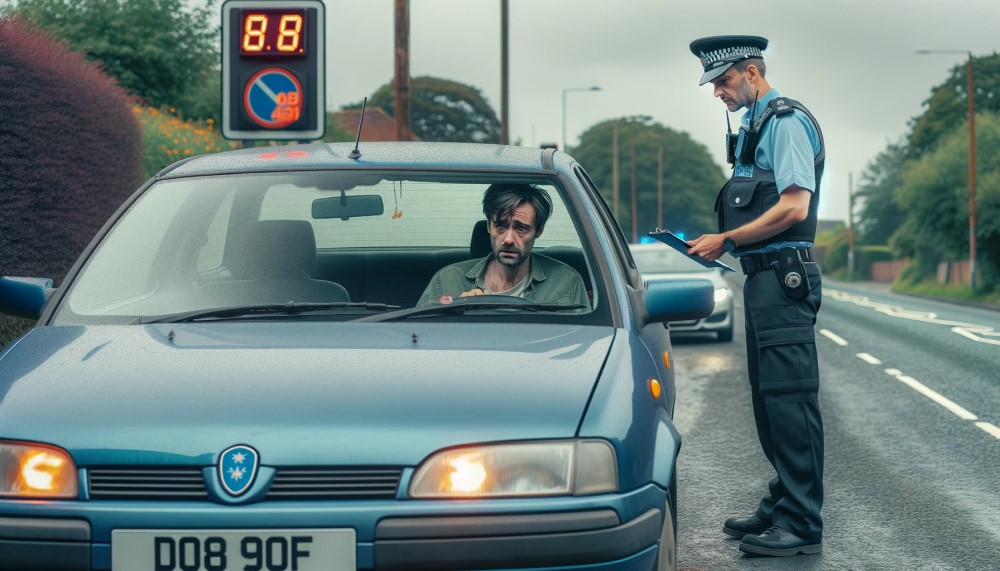Understanding the Statute of Limitations for Prosecuting Driving Offences in England
Understanding the Statute of Limitations for Prosecuting Driving Offences in England
In the United Kingdom, driving offences are taken seriously to ensure road safety and maintain order on the streets. Individuals who commit driving offences may wonder about the timeframe within which they can be prosecuted. This article delves into the concept of the statute of limitations for prosecuting driving offences in England.
Statute of Limitations

Unlike some countries, England does not have a specific statute of limitations that applies universally to all criminal offences, including driving offences. Instead, the prosecution of driving offences in England depends on various factors, including the nature of the offence, its severity, and the evidence available.
Common Driving Offences

To understand the prosecution timeline for driving offences, it’s important to categorise them into two main groups: summary offences and indictable offences.
- Summary Offences: Summary driving offences are less severe and include minor traffic violations such as speeding, running a red light, or using a mobile phone while driving. These offences are typically prosecuted within six months of the alleged incident.
- Indictable Offences: Indictable driving offences are more serious, such as dangerous driving, driving under the influence (DUI), or causing death by dangerous driving. There is no strict time limit for prosecuting indictable offences, and these cases can be pursued even years after the alleged incident, depending on the available evidence.
Prosecution Process

The process of prosecuting driving offences in England typically follows these steps:
- Alleged Offence: The alleged driving offence is reported, and evidence is gathered, which may include eyewitness accounts, CCTV footage, or police reports.
- Investigation: Law enforcement agencies investigate the incident, gather evidence, and identify the responsible party.
- Decision to Prosecute: The Crown Prosecution Service (CPS) decides whether to prosecute based on the evidence and the severity of the offence. For summary offences, this decision is usually made within six months.
- Court Proceedings: If a case goes to court, it may take several months to reach a verdict, depending on court schedules and the complexity of the case.
Conclusion: Understanding the Statute of Limitations for Prosecuting Driving Offences in England

In England, there is no fixed statute of limitations for prosecuting driving offences. The timeframe within which you can be prosecuted depends on the nature of the offence and the evidence available. Summary offences are typically prosecuted within six months, while indictable offences can be pursued for a longer period.
It’s essential to understand your rights and seek legal advice if you are facing prosecution for a driving offence. Staying informed about the specifics of your case and the applicable laws can help you navigate the legal process effectively.
Notice: Informational Content Disclaimer
The content provided on this website, including articles, blog posts, and other informational materials, is intended for general informational purposes only. It is not intended as, and should not be considered, legal advice.
Visitors to this website should be aware that the information presented here is not a substitute for seeking legal advice from a qualified solicitor or legal professional. Each individual's legal situation is unique, and the information provided may not be applicable to specific circumstances.
If you require legal advice or have specific legal questions, we encourage you to contact us directly. Our experienced team of solicitors is here to assist you with your legal needs and provide tailored advice to address your concerns.
Please be advised that any communication through this website, including the use of contact forms or email, does not create a solicitor-client relationship. Confidential or time-sensitive information should not be sent through this website. To establish a solicitor-client relationship and discuss your legal matters in detail, please contact us for a consultation.
We strive to provide accurate and up-to-date information, but we make no representations or warranties regarding the accuracy, completeness, or suitability of the information contained on this website. We shall not be liable for any reliance placed on the information provided herein.
Thank you for visiting our website. We look forward to the opportunity to assist you with your legal needs.




